Berkshire Grown members are working on a variety of different ways to get local food to hungry people. Click here to read the most recent newsletter with news about our vendors and subscribe to the newsletter here.
All of these details are subject to change. Please contact the farm or company directly to confirm their offerings.

Farmer Beatrice Berle from Berle Farm in Hoosick, NY, meets with Nick Martinelli of Marty’s Local at the Annual Networking Event. Buyers and growers could meet with up to six people for 10 minutes each to promote their products.
In February, Berkshire Grown held our 21st Annual Networking Event. This event, which started in 1999 as a Business to Business gathering, brings together local food producers and food buyers for an afternoon of mingling and making connections between buyers and sellers.
This year the event took place at Hancock Shaker Village, a new location that provided a lovely background for a fun and productive gathering. The focus of the event was on institutional buyers, but all kinds of local food purchasers were represented (retail outlets, restaurants, schools, and more). Attendees brought samples of local products like ghee, maple syrup, kombucha, cheese, jams and jellies. Berkshire Grown business met with local food buyers for one-on-one sessions during the first part of the event. After those meetings, Mike Webster, the Dining Director of the Hotchkiss School in Connecticut, gave a brief talk on his success in dramatically increasing the school’s local food purchases while keeping costs level. He brought Kelley Babbin of Howling Flats Farm, one of the many farmers he works with. Mike’s enthusiasm for local food purchasing, along with his encouraging story and solid advice for local farmers and buyers alike, made his talk one of the highlights of the event.
The afternoon concluded with general networking among all attendees, accompanied by the variety of tasty samples on offer. Some Berkshire Grown farmers caught up with friends and colleagues to discuss the start of the main growing season while other producers chatted with buyers and exchanged contact information for future partnerships.
Brigid Dorsey (owner of les collines) crafts small-batch, locally-sourced jelly and preserves. She struggles to convince buyers that her product is not just a breakfast accompaniment, it’s a versatile fine-dining ingredient (with a fair price point to match). At the event, Brigid was able to have an in-depth exchange with a local food retailer who’s already placed an order for her delicious preserves. And Sam Perkins, half of the duo who produce Bug Hill Farm’s delicious shrubs and cordials, appreciates that the event reduces the time he has to spend on sales calls and scheduling buyer meetings. Hannah Jacobson-Hardy of Full Moon Ghee also noted the challenges of finding enough time to connect with buyers, and came away from the event with several new prospects.
We’re thrilled to have hosted another successful networking event, and we look forward to making even more connections happen next year!
If you spend any time in the Berkshires during March and April, you’ve probably noticed at least a few signs of maple season. You might pass a woodlot crisscrossed with tubing carrying maple sap, or notice metal buckets hanging on trees. Sugar shacks send up smoke as they operate day and night to reduce the maple trees’ sap into dreamy syrup. And we definitely hope that you’re taking advantage of the season by visiting some of our region’s maple farms, many of whom offer special events, tastings, and the chance to see the syrup-making process up close.
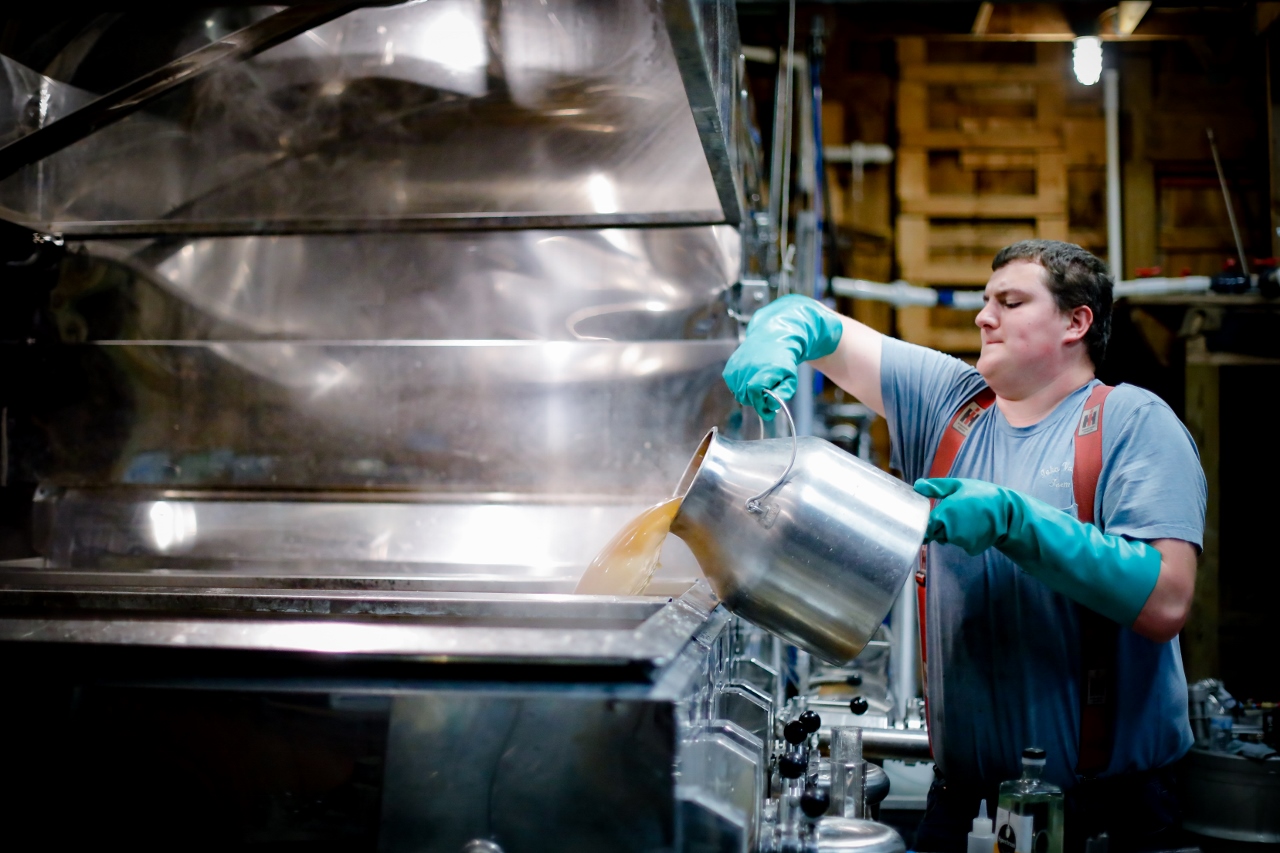
Ioka Valley farm has been boiling maple syrup and creating specialty maple products since 1994. Josh Leab pours sap into the evaporator. Photo by Stephanie Zollshan.
Essentially, maple syrup is sap from maple trees that’s boiled down into syrup. Hobbyists can make syrup by tapping a few trees and boiling the sap on a small wood-fired evaporator, while professional operations use specialized equipment to make syrup from thousands of taps. The start and end dates of “sugar season” vary from year to year, so maple producers pay close attention to the weather as winter starts to fade.
Berkshire Grown is proud to include several local maple farms in our membership, and we reached out to find out more about how they produce this important local product and what the maple season looks like for them. One common thread in the stories we heard was that producers started small, caught “sugar fever”, and gradually added more taps and equipment to reach their current production level.

Families enjoy the maple syrup atop a myriad of pancake flavors, from plain to bluebarry, to Heath Bar crunch. Photo by Stephanie Zollshan.
Carla Turner, of Turner Farms Maple Syrup in Egremont, has been making maple syrup with her family for 35 years. Turner Farms makes 1,200-1,500 gallons of syrup per year from 3,000 taps. They use reverse osmosis (RO) equipment to remove some water from the sap before boiling, which saves energy and reduces costs. The sap then goes to the evaporator, and the finished syrup is filtered and bottled.
Turner says her favorite part of the maple syrup season is also the most challenging: the fact that every year is different, and that producers have to hope that the weather will be favorable, their equipment and setup will work properly, and that customers continue to value their hard work. In the end, it’s the customers who make the whole process worthwhile, especially the families who come to the farm year after year.
At Ioka Valley Farm in Hancock, Missy and Rob Leab produce over 8,000 gallons of maple syrup each year. Their farm is a hub for visitors who want to learn more about the process, with tours and tastings available throughout maple season. In addition to their syrup, they make specialty products like maple cotton candy, maple cream, and maple-sweetened BBQ sauce.
Looking for more maple? Check out more Berkshire Grown member farms: Berle Farm, Holiday Brook Farm, Ioka Valley Farm, Jennings Brook Farm, Justamere Tree Farm, Sweet Brook Farm, Turner Farms.
Berkshire Grown’s goals:
- keep farmers farming
- promote public awareness of local agriculture
- and make fresh, local food accessible community-wide
We do this by…
-
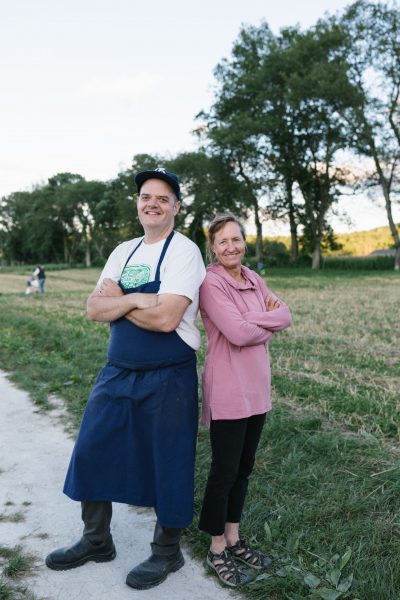
-
Networking farmers & food buyers
-
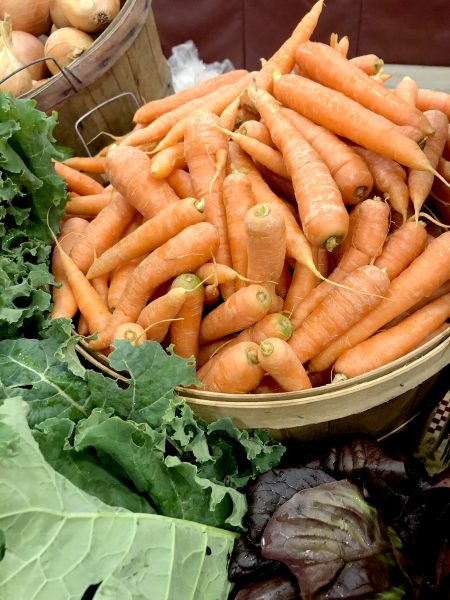
-
Increasing community-wide access to local food through Share the Bounty
-
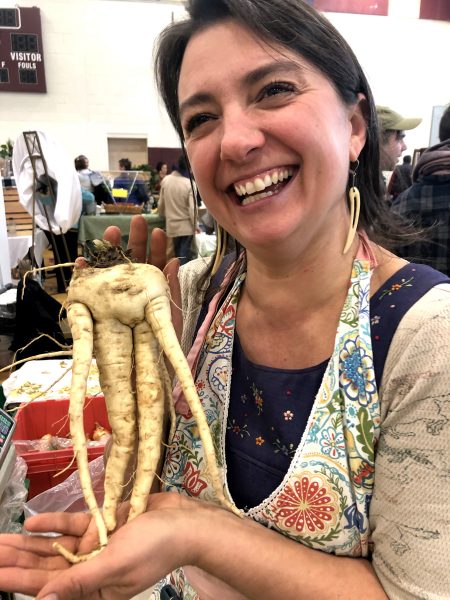
-
Producing eight winter indoor farmers markets
-
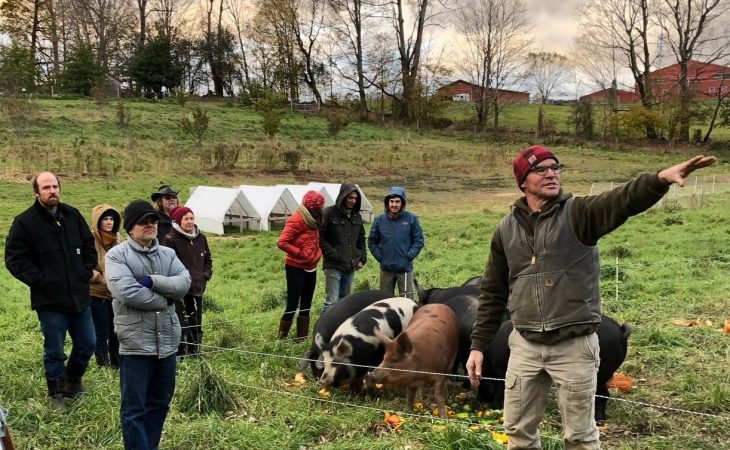
-
Fostering education and outreach for farmers and community members
-
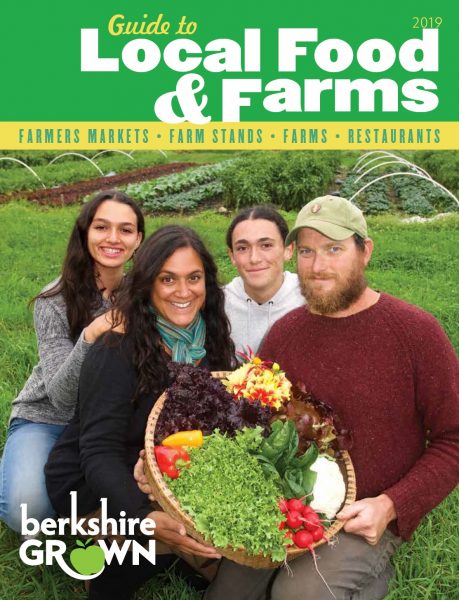
-
Producing the Guide to Local Food & Farms
-
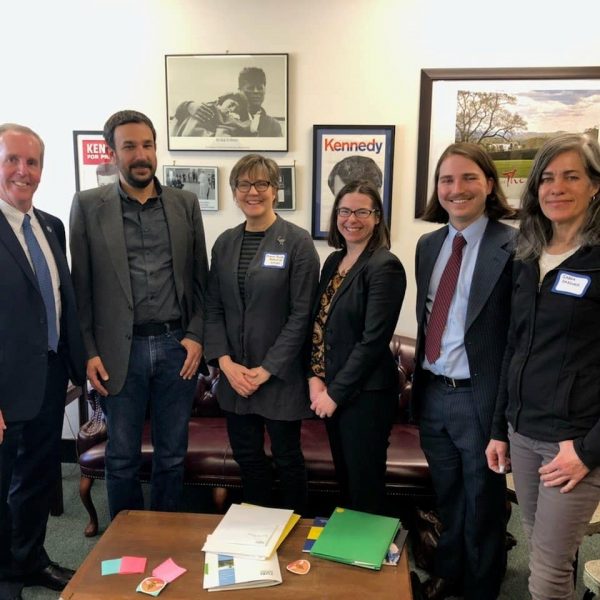
-
Advocating for farmers
We can’t do this work without you. Please consider making a gift to Berkshire Grown this holiday season. To make a secure gift online, visit BerkshireGrown.org/Support.
Market Match helps make farmers markets more affordable.
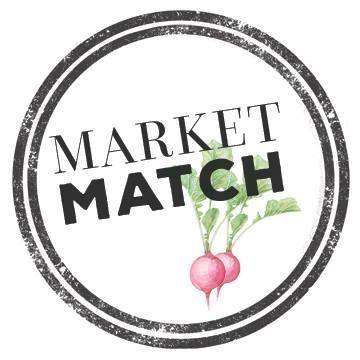
Most Berkshire County farmers markets participate in at least one of the following benefit programs:
- SNAP (Supplemental Nutrition Assistance Program)
- HIP (Healthy Incentives Program)
- WIC Farmers Market Coupons
- Senior Farmers Market Nutrition Program (FNMP) Coupons
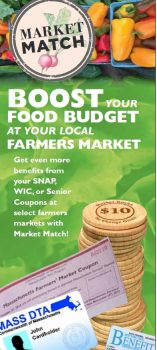 In addition, many markets provide incentive programs to increase the value of these benefits. The Market Match brochure helps people find the days, times, and locations of the markets that accept their benefits.
In addition, many markets provide incentive programs to increase the value of these benefits. The Market Match brochure helps people find the days, times, and locations of the markets that accept their benefits.
Markets that have a matching program are designated with the “Market Match” logo. Programs vary at individual markets, so visiting the Market Manager is the best way to get the details of each market’s program.
Berkshire Farmers Markets’ Market Match
Berkshire County HIP vendor list is now available.
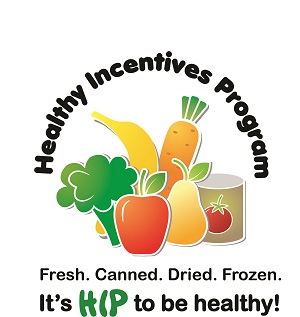 Thanks to a joint effort from the Food Bank of Western Massachusetts and Berkshire Grown, we now have a comprehensive list of all HIP vendor locations in Berkshire County. Listed by town, you can find the farm or market name, vendor type (CSA, Farm Stand, or Farmers Market), location and operating hours. Click the link to see the list!
Thanks to a joint effort from the Food Bank of Western Massachusetts and Berkshire Grown, we now have a comprehensive list of all HIP vendor locations in Berkshire County. Listed by town, you can find the farm or market name, vendor type (CSA, Farm Stand, or Farmers Market), location and operating hours. Click the link to see the list!
Berkshire County HIP Vendor List











